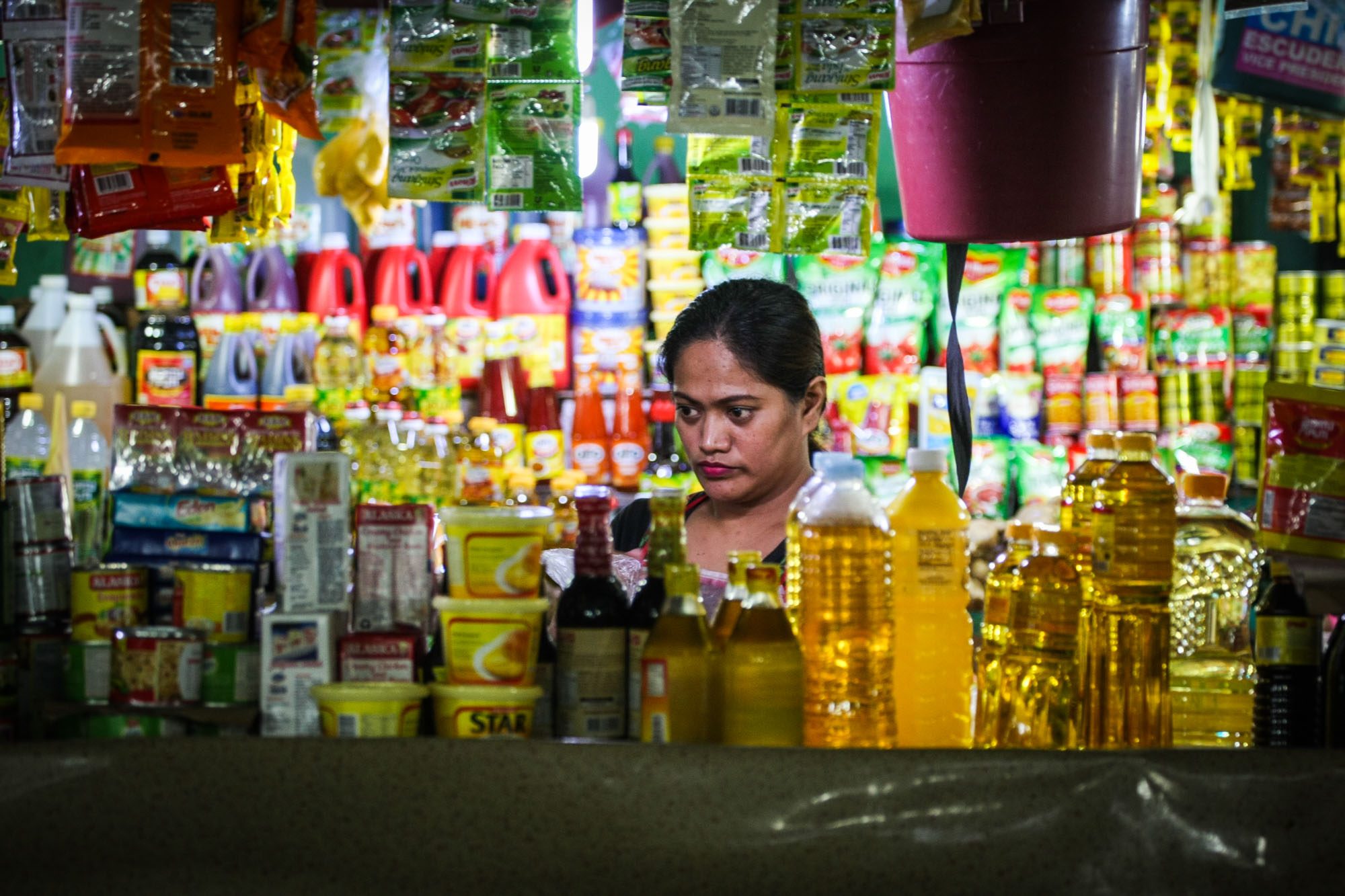SUMMARY
This is AI generated summarization, which may have errors. For context, always refer to the full article.

MANILA, Philippines (UPDATED) – Inflation in July surged to 5.7%, the highest in over 5 years. The figure brought up this year’s average to 4.5%, already beyond the government’s target range of 2% to 4%.
The figures are worse if we look at the regional data. The Autonomous Region in Muslim Mindanao felt 7.7% inflation.
Should we worry about the elevated prices of goods? Experts are starting to get the jitters.
When we should worry
- Alvin Ang, Ateneo Center for Economic Research and Development: July inflation was still within estimates. We [should] worry if it hits more than 6.2% since that is already beyond the maximum of our estimates.
- Filomeno Sta Ana, Action for Economic Reforms: Policy makers should absolutely worry about inflation now. The question now is the appropriateness of the response.
- JC Punongbayan, Rappler columnist and UP Diliman PhD candidate: Inflation is an expectations game and economic managers should absolutely worry. Inflation is already beyond their targets.
Why inflation accelerated further
- Government’s economic managers: The higher year-on-year inflation reading was brought about by the spike in the prices of food and non-alcoholic beverages. Part of the supply problem is the country’s declining rice stock inventory – caused by weather disturbances in the country and in other rice-producing countries like Thailand and Vietnam – which is taking a toll on the prices of rice. The deflation in the price index of education (-3.9% from 4.0%) and the deceleration of recreation and culture (0.9% from 1.4%) slightly tempered the increase in headline inflation. The significant decline in the cost of education can be mainly attributed to the government’s provision of free tertiary education in state universities and colleges.
Who or what is to blame
- Ang: Global factors like oil price hikes. They [economic managers] were also not able to communicate the effects of [the] Tax Reform for Acceleration and Inclusion (TRAIN) law well and were not able to coordinate among government agencies.
- Sta Ana: The main causes of inflation are the rise in global prices of crude oil and the spike in the price of food items, especially rice,which constitutes the biggest weight in the consumer price index (CPI). Many critics are barking up the wrong tree for blaming TRAIN for the higher inflation. It has been expected that TRAIN will add to inflation, but its inflationary effect is within bounds and is manageable (equivalent to 0.4 percentage point of total inflation). The tax reform is long overdue and the benefits, even for the short term, outweigh the costs. So it’s a good trade-off.
- Punongbayan: Oil prices in the global market and the depleted rice stocks of cheap rice from the National Food Authority. It’s not entirely clear what government can actually do [to address] these international factors. But for domestic factors, the government should have coordinated better. Economic managers should also be more transparent. In a way, the economic team was a victim of circumstances.
Solutions
- Economic managers: The current price pressures emanate mainly from supply-side factors. Addressing supply constraints to curb inflation is the utmost priority of the government. Government agencies like the Department of Trade and Industry (DTI) and Department of Agriculture (DA) should impose stricter price monitoring to ensure that no unscrupulous individuals or groups are manipulating the prices of goods. To cushion the impact of rising fuel prices, the government needs to complete the implementation of the Pantawid Pasada Program, which provides a lump sum subsidy of P5,000 to 179,852 legitimate jeepney franchise holders registered this year.
- Punongbayan: The economic team should improve their forecasting capabilities. There was a major flaw in the assumptions they used in TRAIN. They should also incorporate people’s expectations in inflation.
- Ang: The solution is to ensure that food is available, particularly rice. Flooding the market with basic necessities could bring prices down. This, however, takes more than government effort. It takes good communication, coordination, and private sector support. Subsidies are not sustainable because you just fuel people with more money so you need to address [the] supply side. The Bangko Sentral ng Pilipinas (BSP) should also stop its reserve requirements reduction at this time.
- Sta Ana: The hike in interest rates does not address supply problems. Note that the main factors causing inflation are supply-driven. But the BSP considers that option to temper inflation expectations. Expectations can be self-fulfilling.
– Rappler.com
Add a comment
How does this make you feel?
There are no comments yet. Add your comment to start the conversation.